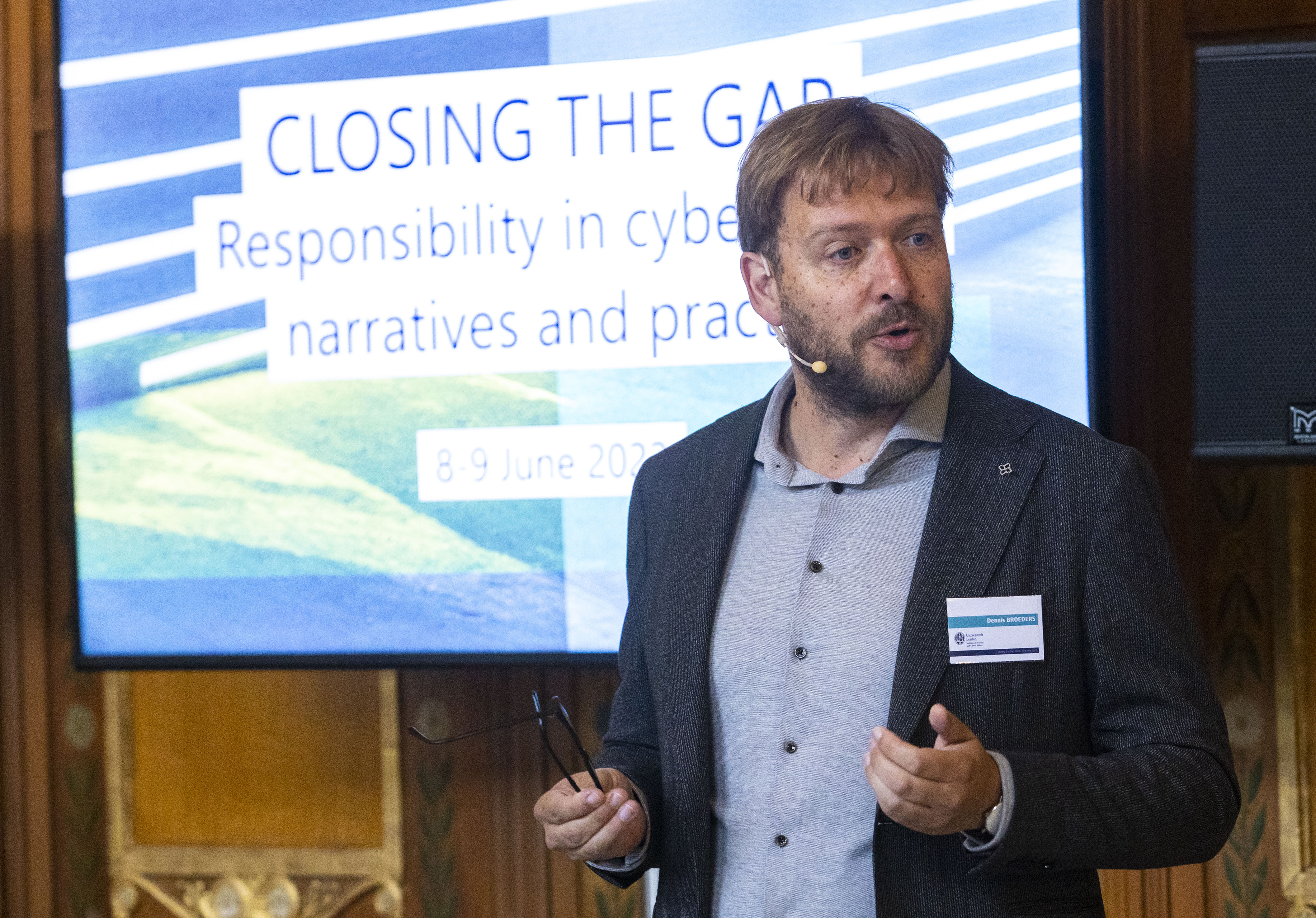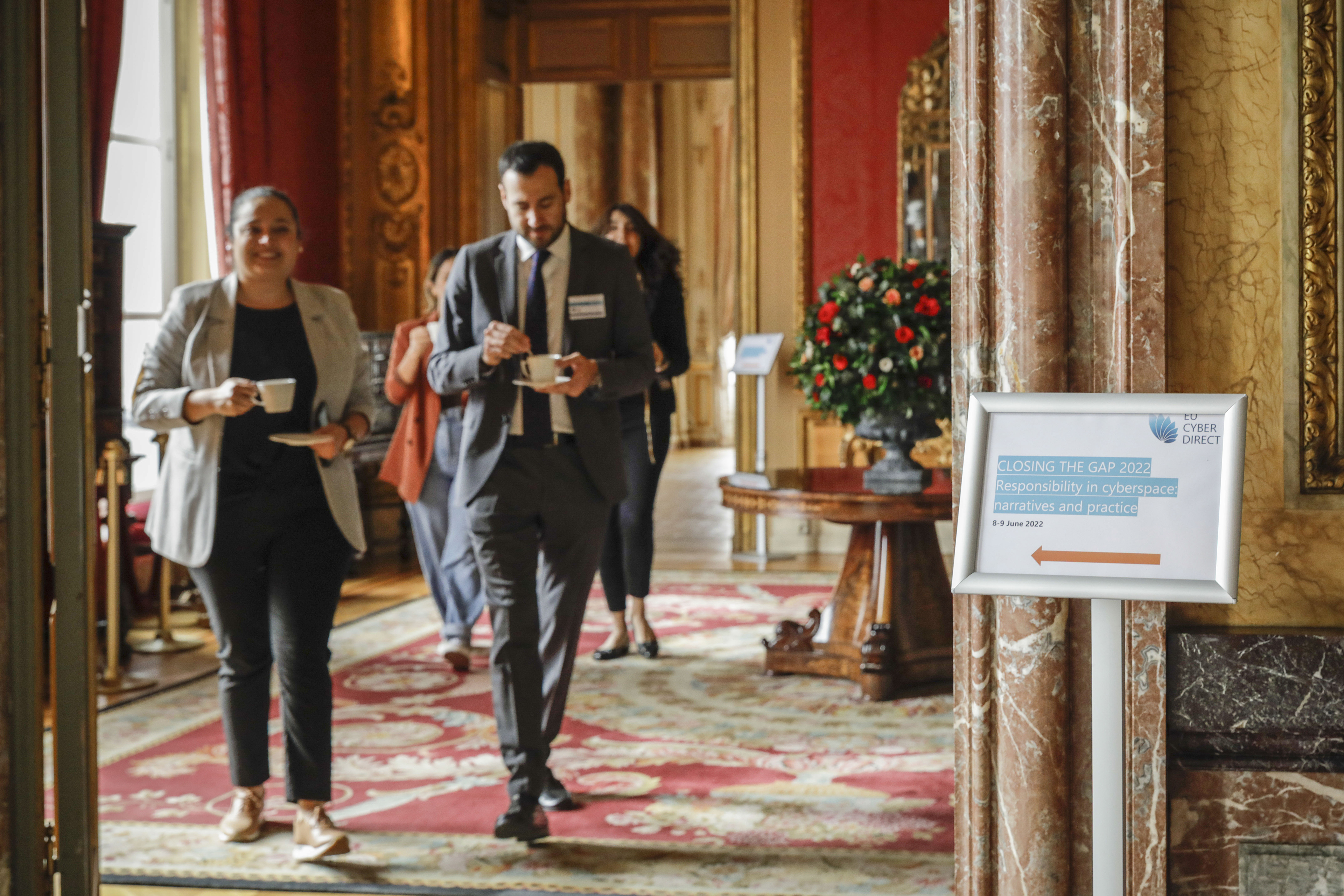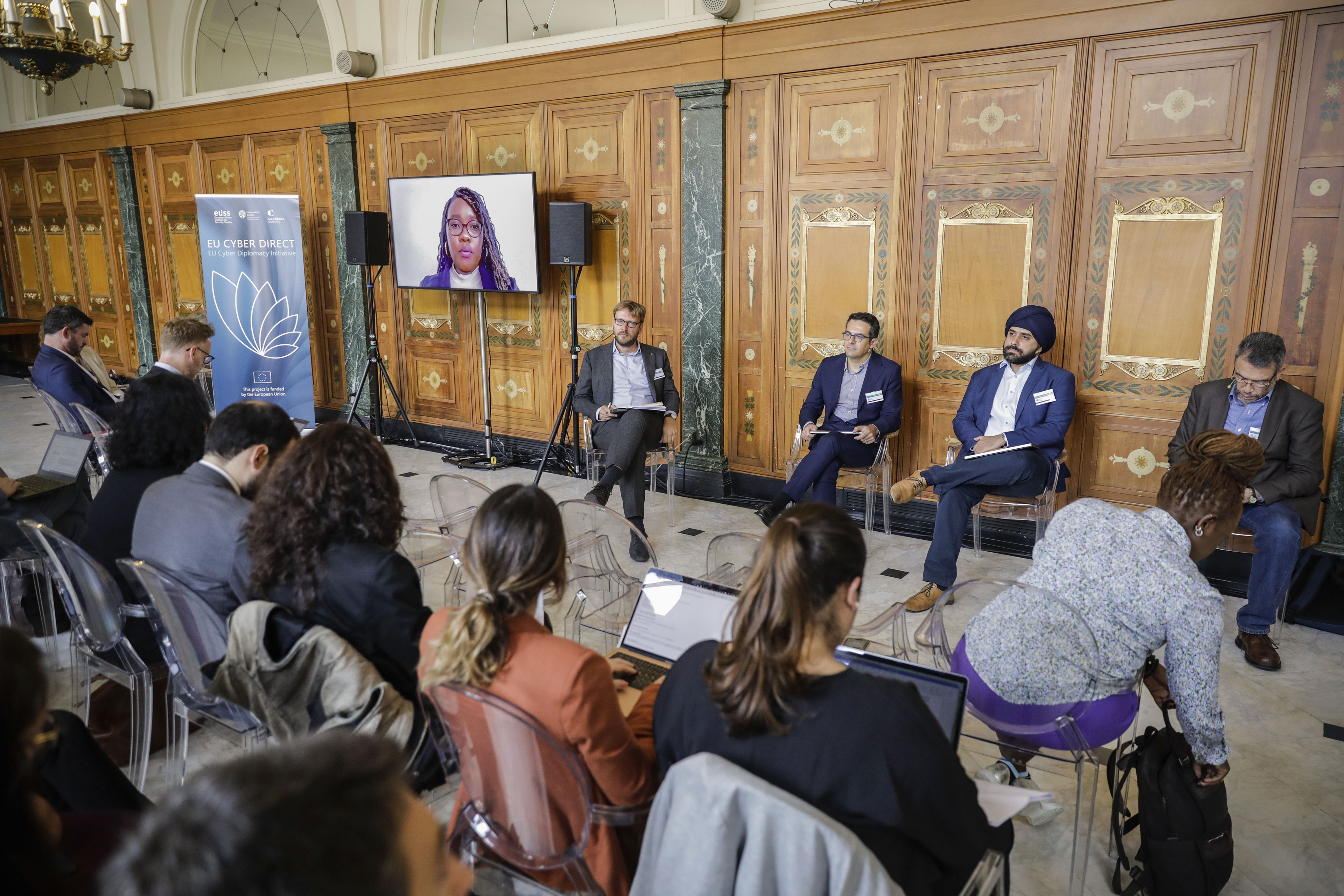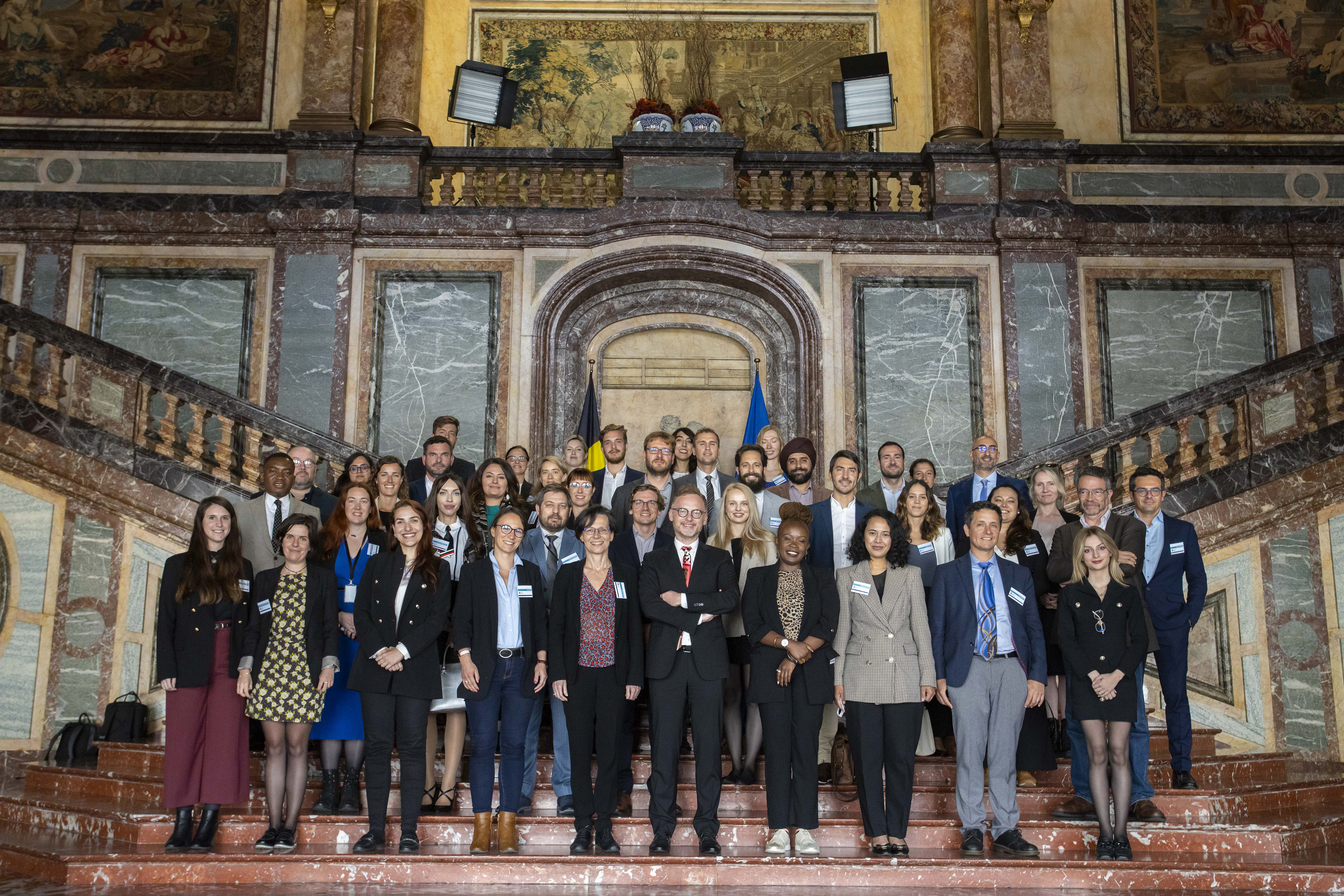
Closing the Gap on responsibility and accountability in cyberspace
On 8 and 9 June, the second edition of EU Cyber Direct’s Closing the Gap conference took place at the Egmont Palace in Brussels, Belgium. This year’s edition was organized by François Delerue and Dennis Broeders as part of their participation in the EU Cyber Direct project, of which the Institute of Security and Global Affairs is one of the partners.
The conference was organized in cooperation with the Belgian Federal Public Service Foreign Affairs and numerous research institutions and civil society organisations around the world. Leiden University’s The Hague Program on International Cyber Security was also one of the supporting partners of the conference.
The opening remarks were given by Mathieu Michel, Belgian State Secretary for Digitization, in charge of Administrative Simplification, Privacy and Buildings Administration, followed by various panel sessions on the theme of responsibility and accountability in cyberspace. The discussions during the different panels and roundtables highlighted the diversity of approaches on these matters. It showed the relevance of Closing the Gap in contributing to exchange views on these questions among researchers and policy makers from different geographical and disciplinary backgrounds.

An interesting element of the discussions was how different initiatives of the European Union were perceived by individuals in other regions of the world. From that perspective, the notion of ‘capacity building’ as well as the content and objectives of different capacity building efforts were discussed.
The panels on multilateral and regional processes and perspectives highlighted different ongoing dynamics in different fora. The panel on international law, for instance, showed the diversity of perception among States and other actors from different horizons, on existing rules and principles and on how they are to be interpreted and operationalized. The panel on non-state actors showed the diversity of relevant actors on these matters.

An important objective of the Conference was to gather scholars from different geographical and disciplinary backgrounds, and to foster the development of connection and collaboration among them as well as with EU Cyber Direct and European-based researchers and projects. After two years of travel restrictions related to the COVID-19 pandemic, the event was a success in that sense, in allowing the development of new collaborations with international scholars who had not yet had the opportunity to collaborate. This also translated into the richness and diversity of the presented papers, which will be published late 2022 or early 2023 into an edited volume with a policy-oriented focus.
-

Dennis Broeders introducing the EU Cyber Direct project -

Impression of Closing the Gap 2022 -

Impression of Closing the Gap 2022 -

Panel on Closing the Gaps in the Multilateral Processes and Perspectives with Dennis Broeders (chair), Alejandro Pisanty, Moliehi Makumane, Enrico Calandro, Mabda Fajrilla Sidiq, and Raman Jit Singh Chima -

Participants of Closing the Gap 2022 -

Impression of Closing the Gap 2022
